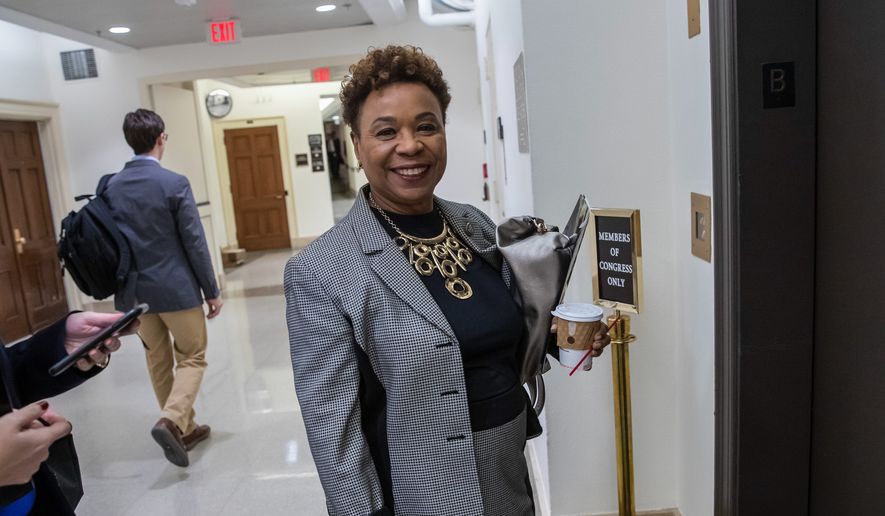Rep. Barbara Lee of California, one of the more influential black members of Congress, responded with an emphatic, “Oh, yes,” when asked whether she was fielding calls from 2020 presidential contenders now that her first choice, Sen. Kamala D. Harris, dropped out of the race.
The Harris exit has set off a scramble for her volunteers, donors, and backers, and none of them could carry more symbolic weight than 11 members of the powerful Congressional Black Caucus who had endorsed the California senator’s bid and that could now strengthen another candidate’s credibility among black voters.
“They’ve been calling, but I am not leaning in any direction yet,” Ms. Lee, who served as co-chair of the Harris campaign and also as a former chair of the CBC, told The Washington Times.
She was tight-lipped about who had reached out.
The demise of Ms. Harris’s campaign has ignited all sorts of speculations about who has the most to gain politically from her fall.
A likely beneficiary is former Vice President Joseph R. Biden, whose ties to former President Barack Obama have bolstered his standing among black voters, including in states like South Carolina where Ms. Harris believed she could make inroads as the second black woman elected to the Senate and as the daughter of Indian and Jamaican immigrants.
Mr. Biden already has won several endorsements from CBC members, including from three former chairs: Reps. Cedric Richmond of Louisiana, who also serves as a Biden campaign co-chair, G.K. Butterfield of North Carolina and Emanuel Cleaver of Missouri.
A recent Quinnipiac University national poll showed Mr. Biden was the second choice of 11% of Ms. Harris’ supporters — more than anyone else in the field.
Sen. Elizabeth Warren of Massachusetts received 7%, followed by Mayor Pete Buttigieg of South Bend, Indiana, at 4%, and Sen. Bernard Sanders of Vermont at 3%.
Others, though, said another CBC member Sen. Cory A. Booker of New Jersey could get a post-Harris bounce.
“She and Cory Booker were kind of going for the same groups and demographics,” said Richard Lewis Pacelle Jr., a political science professor at the University of Tennessee.
Ms. Harris was never part of the progressive wing of candidates, so it’s likely a more moderate candidate such as Mr. Booker will get a second look from her supporters, Mr. Pacelle said.
“I don’t think they will go to like Elizabeth Warren. They could go to Biden,” he said.
Dick Anderson, a political science professor at the University of California, Los Angeles, said Ms. Harris’ support was marginal and not sufficient to give any of the other candidates a bump. He predicted her supporters would eventually gravitate to the candidate they believe will defeat President Trump.
“I expect that ’Harris voters,’ that is, people who answered that they supported Harris in recent polls instead of Warren or Sanders or Biden or Buttigieg, will now support no one, but will become supporters of whoever looks likely to win the nomination,” he said.
Ms. Harris entered the race with sky-high expectations. She proved to be a strong fundraiser and racked up more CBC endorsements than anyone in the field.
But she failed to translate those signs of strength into sustainable momentum, leaving her with the unwanted distinction of being the most high-profile casualty in the race and her former supporters going back to the drawing board
“I’m still looking them all over, kicking the tires,” Rep. Bobby Rush of Illinois told The Times.
Rep. Jahana Hayes of Connecticut said she’s also received calls from 2020 contenders since Ms. Harris left the race.
“People are always trying to get a minute to sit down and discuss the possibility of some support,” she said.
Pressed on who had reached out to her, she laughed and said, “I’m not doing that.”
• David Sherfinski contributed to this report.
• Seth McLaughlin can be reached at smclaughlin@washingtontimes.com.
• Alex Swoyer can be reached at aswoyer@washingtontimes.com.




Please read our comment policy before commenting.